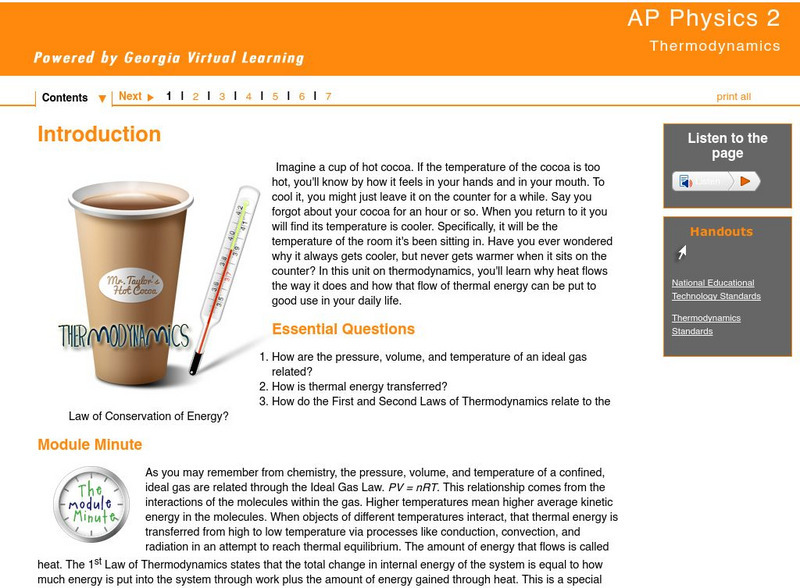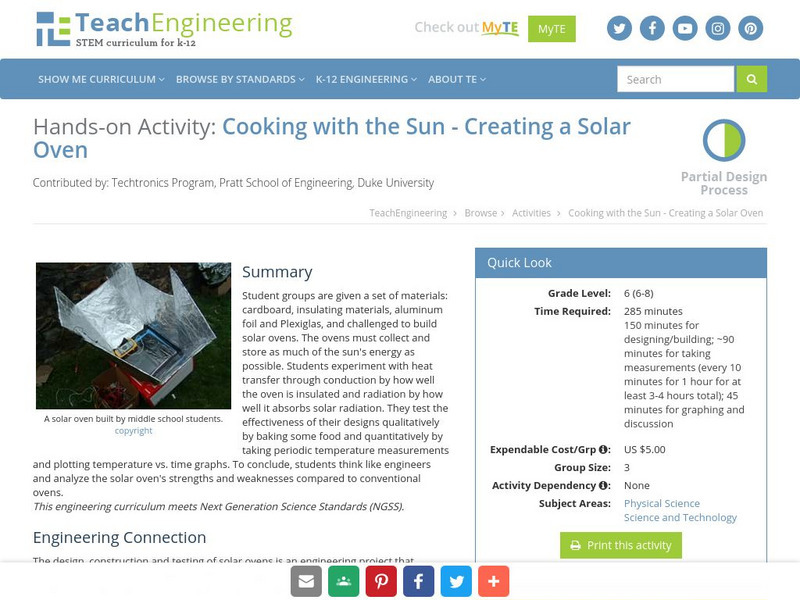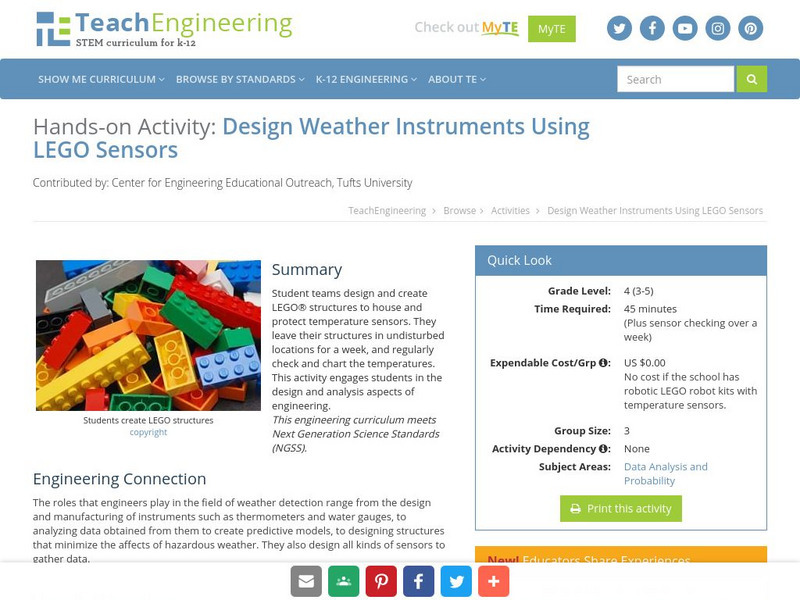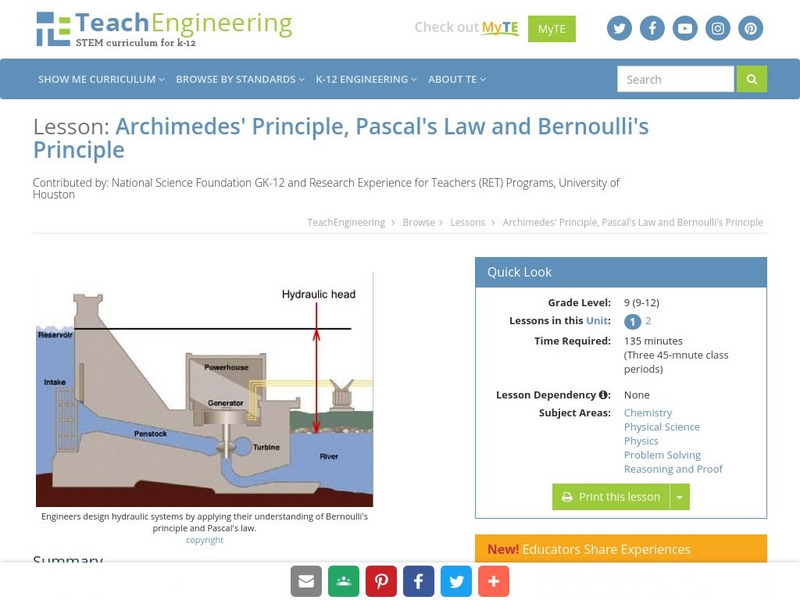Georgia Department of Education
Ga Virtual Learning: Thermodynamics
In this interactive unit on thermodynamics, you'll learn why heat flows the way it does and how that flow of thermal energy can be put to good use in your daily life.
TeachEngineering
Teach Engineering: Cooking With the Sun Creating a Solar Oven
For this activity, students will be given a set of materials: cardboard, a set of insulating materials (i.e. foam, newspaper, etc.), aluminum foil, and Plexiglas. Students will then become engineers in building a solar oven from the...
TeachEngineering
Teach Engineering: Above Ground Storage Tank Design Project
In this culminating activity, student groups act as engineering design teams to come up with improved storage tank designs to make them less vulnerable to uplift, displacement and buckling in storm conditions.
TeachEngineering
Teach Engineering: Design Weather Instruments Using Lego Sensors
Students will design and create a LEGO structure that will house and protect a temperature sensor. They will leave the structure in a safe spot and check the temperature regularly and chart it.
TeachEngineering
Teach Engineering: The Physics of Fluid Mechanics
Five lessons about the study of fluid mechanics. The unit concludes with students applying what they have learned to determine the stability of individual above-ground storage tanks given specific storm conditions so they can analyze...
TeachEngineering
Teach Engineering: Archimedes' Principle, Pascal's Law and Bernoulli's Principle
Students are introduced to Pascal's law, Archimedes' principle, and Bernoulli's principle through problems and engineering applications.
Science Struck
Science Struck: A Beginner's Guide: How Does a Hydraulic Motor Work?
Learn the mechanics behind how a hydraulic motor works, some different types of hydraulic motors, and their applications in industry.
Science Struck
Science Struck: Piston Pump vs. Diaphragm Pump
Learn the difference between a piston pump and a diaphragm pump, both of which are positive displacement pumps. Includes chart listing characteristics for each, their different types, and their advantages and disadvantages.








